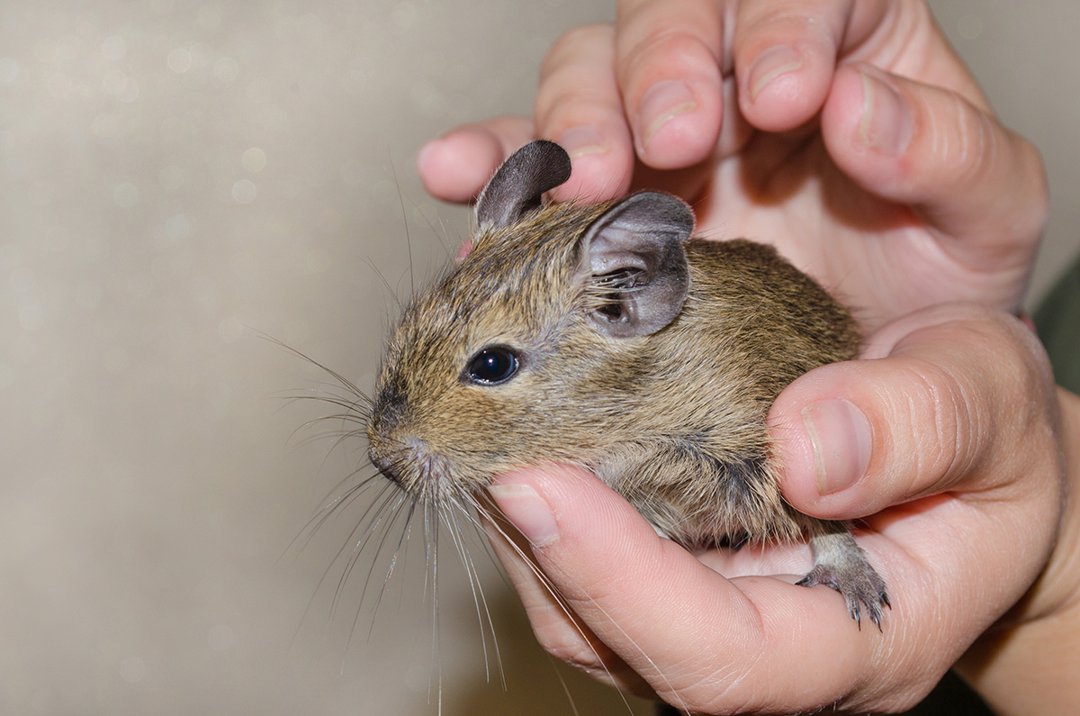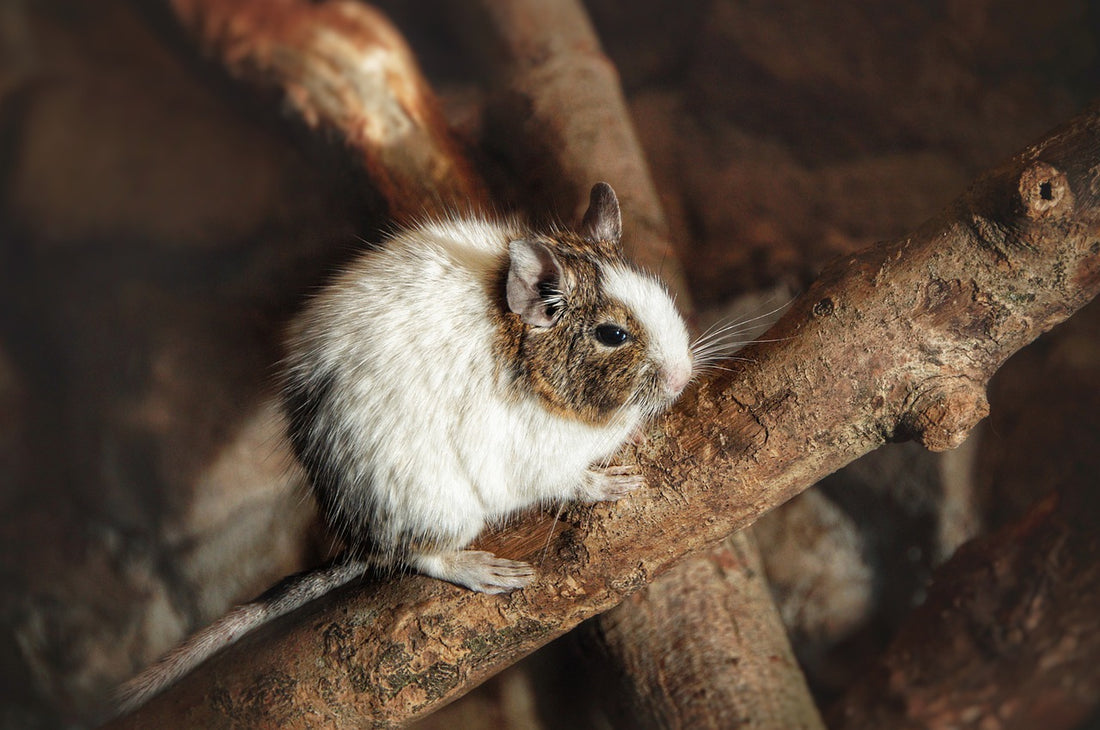What Do Degus Eat
What do degus eat? Degus are herbivores, so they basically eat plants. With the proper diet and plenty of exercise, your degu can live 8-10 years and be a super companion for years yet to come. So grab a few timothy hay, leafy greens, and quality pellets and let’s get your degu eating right!
15-20% and crude fat much less than 5%. Limit pelleted food to around 1 tablespoon per degu every day.
Some good options are:
- Leafy greens like romaine lettuce, spinach, and kale
- Root vegetables together with carrots, beets, and sweet potatoes
- Broccoli and bell peppers
- Strawberries, blueberries and melons
Limit treats to not more than 1 tablespoon of chopped veggies per degu 2-3 times a week. Too many sugary fruits can result in obesity and other health issues in degus.
Always ensure your degus should have access to fresh, clean water. Change water bottles or bowls daily and refill as needed.
What Do Degus Eat Regularly?
Degus are herbivores, so the bulk of their diet ought to be plant-based. Their essential staples are:
Hay:
- Degus need constant access to fresh timothy hay, which provides roughage and helps wear down their teeth. Alfalfa hay can accept in moderation.
- Provide hay in a rack that allows your degu to forage as they could within the wild. This offer them mental stimulation and enriches their environment.
Fresh Vegetables:
- Fresh produce offers nutrition and variety. Good options are leafy greens like romaine, carrots, broccoli, berries, melons, and the occasional treat of a grape.
- Only provide one new food at a time and in moderation to make sure your degu tolerates it before giving more. Remove any uneaten fresh food within some hours to avoid spoilage.
Pellets:
- High-quality degu pellets should make up about 1/4 of their daily diet. Look for a pellet for degus that is high in fiber, low in protein (12-16%), fat (3-5%), and calories.
- Measure the proper amount of pellets for your degu’s age and size to keep away from overfeeding. Overeating pelleted food can cause obesity and health problems in degus.
Foods to Avoid
Degus have particular dietary needs to keep them healthy and satisfied. There are certain ingredients you need to avoid giving your degu.
Sugary foods
Degus cannot metabolize a lot of sugar properly and it may be harmful to them.
Don’t give your degu any sugary foods like:
- Candy
- Chocolate
- Cookies
- Cake
Too much sugar can cause obesity, dental problems and other health problems in degus.
Starchy foods
Starchy foods like pasta, rice and bread also have a lot of carbohydrates that degus war to digest properly. Do not give your degu:
- Pasta
- Rice
- Bread
- Cereal
- Crackers
These types of foods provide little nutrition for degus and the excess carbs are hard on their system.
Fatty and salty foods
Degus needs to eat a low-fat diet. Fatty and salty human foods are not suitable for them. Do not give your degu:
- Chips
- Pretzels
- Peanuts
- Fatty meats like bacon
- Butter or oil
Too much fat and salt is unhealthy for degus and may cause obesity, heart disease and other issues.
Fresh fruits and vegetables, along with a best degu pellet, must make up the bulk of your degu’s diet. Avoid giving sugary, starchy and fatty human foods which lack nutrition and are hard for degus to digest. By feeding your degu a healthy, balanced diet you will help keep them at an ideal weight and assist their long term health and happiness.
Creating a Balanced Diet for Your Degu’s Health
Fresh Food
Fresh fruits and veggies should make up about 40-50% of your degu’s diet. Some good options include:
- Leafy vegetables: Give your degu leafy veggies 2-3 times per week, including romaine lettuce, spinach, and kale. These provide vitamins like nutrition A, diet C and calcium.
- Other vegetables: Carrots, broccoli, cucumber, zucchini, bell peppers and cabbage are also outstanding for degus. Offer a variety of distinct veggies every week.
- Fruit: Apples, berries, melons and citrus fruits provide natural sugars, but only give in moderation due to the high sugar content. Limit fruit to no more than 1-2 tablespoons per degu, 2-3 times a week.
Pelleted Food
A pelleted food should make up the remaining 50-60% of your degu’s diet.
Choose a high-quality pellet that is specifically formulated for degus. The first ingredient should be timothy hay or another grass. The pellets should be moderately high in fiber (at least 18%) and low in protein (12-16%) and fat (3-5%). Measure out 2-3 tablespoons of pellets per degu each day.
Supplements
In addition to fresh food and pellets, degus need unlimited access to grass hays like timothy, oat or meadow hay. Hays provide extra fiber to keep their digestive system healthy. You should also give your degus a salt lick and mineral stone to ensure they get enough sodium and minerals.
By feeding your degus a lot of fresh fruits and veggies, a high-quality pelleted meals, grass hays and dietary supplements, you will be well in your manner to retaining your hairy pals satisfied and healthy for years yet to come!
| Food Type | Description |
|---|---|
| Hay | High-fiber grass hay (timothy hay) for digestion and dental health |
| Fresh Vegetables | Variety like kale, spinach, carrots, bell peppers, and broccoli |
| Fresh Fruits | Small amounts occasionally; apples, pears, grapes in moderation |
| Pellets | High-quality degu pellets as a primary, controlled nutrition source |
| Seeds and Nuts | Occasional treats; limit due to high fat content (e.g., sunflower and pumpkin seeds) |
Remember that degus are susceptible to diabetes and obesity, so it is important to offer a balanced diet and mointor their intake of sugary meals. Always discuss with a veterinarian or degu professional for dietary recommendations for your pets.

FAQs
1. Can degus have fresh vegetables?
Yes, indeed. Provide a variety of vegetables, including kale, spinach, carrots, bell peppers, and broccoli. These not only add nutritional value but contribute to overall well-being.
2. Can degus have seeds and nuts?
Yes, as occasional treats. However, it’s important to limit their intake due to the high-fat content. Popular choices include sunflower and pumpkin seeds.
3. What should be the primary nutrition source for degus?
High-quality degu pellets should be the primary source of nutrition. These pellets are specially formulated to meet degus’ nutritional needs and should be fed in controlled portions.
4. How should water be provided for degus?
Always make sure clean, fresh water is available in a water bottle. Change water bottles or bowls daily and refill as had to keep your degus hydrated.
5. How do I create a balanced diet for my degu?
Provide a combination of fresh fruits and vegetables (40-50% of their diet), high-quality pellets (50-60%), grass hays, and essential dietary supplements. Ensure variety and moderation to support their long-term health.
You can also check https://www.britannica.com/animal/degu


:strip_icc():format(webp)/95937339-56a2bcc83df78cf772795fd7.jpg)

Excellent article! The depth of analysis is impressive. For those wanting more information, I recommend this link: FIND OUT MORE. Keen to see what others think!